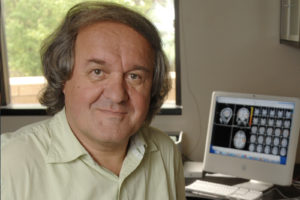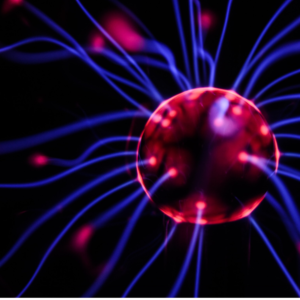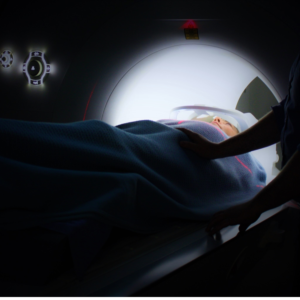Discuss on Tinnitus Talk Forum
 Tinnitus Talk spoke with Dr. Rauschecker, one of the most eminent researchers on tinnitus. We’re excited to launch our podcast series with this highly engaging interview, a must for anyone who wants to understand how tinnitus works in the brain and how we can get to a cure.
Tinnitus Talk spoke with Dr. Rauschecker, one of the most eminent researchers on tinnitus. We’re excited to launch our podcast series with this highly engaging interview, a must for anyone who wants to understand how tinnitus works in the brain and how we can get to a cure.
The interview covers a wide range of topics, from Dr. Rauschecker’s own experience as a tinnitus patient to his theories on how tinnitus manifests in the brain. He hypothesizes on links with other brain disorders like depression, and the role of stress in triggering tinnitus. Dr. Rauschecker is hopeful about the prospect for a cure, but also talks about the obstacles to overcome, specifically the dire lack of funding for tinnitus research. We also discussed the role that patient communities can play in resolving this.
Dr. Rauschecker is currently raising funds for a new study into animal models for tinnitus. You can donate or learn more here.
Skip to: 00:00 Jack Straw talks about the podcast and introduces the interview.
Skip to: 06:40 Hazel and Dr. Rauschecker kick off the interview.
Skip to: 08:11 Dr. Rauschecker’s own experience as a tinnitus patient.
Skip to: 15:02 Tinnitus brain mechanisms: How tinnitus manifests in the brain.
Skip to: 19:41 Tinnitus brain mechanisms: The “gating mechanism” and role of the limbic system.
Skip to: 24:39 Why not all people with hearing loss develop tinnitus.
Skip to: 26:07 Tinnitus and emotional response – what is cause and effect?
The idea that the limbic system is involved in tinnitus is not new, of course. […] The conventional explanation is that this a reaction to the tinnitus. […] But our theory turns this around 180 degrees: What if the broken gating mechanism is the cause of our perception of tinnitus?
Skip to: 32:34 Variability and fluctuations in tinnitus – what factors are at play here?
Skip to: 37:26 Sub-typing: Does it matter what caused one’s tinnitus?
Skip to: 39:37 Comorbidities: How are depression and tinnitus interlinked?
Skip to: 45:26 The role of stress in triggering tinnitus.
Skip to: 49:44 Lack of funding for (cure focused) tinnitus research.
Unfortunately, the funding levels of funding agencies are frighteningly low. I don’t think they understand the importance of that disorder. […] I’m always shocked how little for example the Department of Defence or Department of Veteran Affairs here in the US is doing.
Skip to: 51:52 Dr. Rauschecker’s current and planned research – the importance of animal models.
Skip to: 55:45 The trouble with raising funds for studies involving primates.
Skip to: 57:18 How will Dr. Rauschecker’s research contribute to a cure?
Skip to: 1:00:31 Next steps: clinical trials, deep brain stimulation, pharmaceuticals.
Skip to: 1:04:00 Timeframe: When will we have a cure?
Skip to: 1:05:31 New treatments (e.g. bimodal neuromodulation) and lack of research collaboration.
Skip to: 1:08:56 Mobilizing patient communities to advocate for cure research.
One reaction I often get [when I bring up tinnitus in the neuroscience community] is: ‘It’s not as important as Parkinson’s or Alzheimer’s. You can’t die from tinnitus.’ And I say: ‘Yes you can, if you commit suicide.’ But it’s always considered a minor disorder.
Skip to: 1:14:30 Ideas for public awareness raising.
Skip to: 1:17:00 Dr. Rauschecker’s fundraiser: How will he keep donors updated?
Skip to: 1:20:19 Closing remarks and answering follow-up questions.
Skip to: 1:22:27 Outro by Jack.




My tinnitus is audible only when the room is super silent.
I thought my life was doomed, but I’ve been able to minimize it to a degree that it does not bother by primarily two things:
1. avoid caffeine – specially energy drinks
2. avoid earphones/headphones, and loud music
But it’s still an inconvenience to me that I cannot go to very silence places, or wear headphones, because covering my ears creates a void/silence, which makes the tinnitus audible.
So, keep up the good work and continue with the research! I hope we find a cure.
Hi Andrew,
Glad to hear you’ve found a way of dealing with your tinnitus. If you’re ever in need of support, you’ll find many people with tinnitus ready to help and advise you on the Tinnitus Talk forum at https://www.tinnitustalk.com. There’s a dedicated “Support” section, as well as a “Research” section, and much more.
If you want to join the ongoing discussion about this episode, just follow the link above – where it says “Discuss this episode on the Tinnitus Talk Forum.”
Cheers,
Hazel
Just a tip, try bone conducting headphones, they don’t plug your ears so you still hear surrounding noises.
Hi Andrew, do you not wear headphones because it shuts out external noises and then the tinnitus is louder?
My tinnitus was caused by audible trauma. It comes and goes, two days with it and one day without it. It has been like this for nine years. It’s definitely affecting the quality of my life. Can I remain positive in hoping for a cure. I am finding it difficult?
Hi Clive,
Sorry to hear you’re struggling. We at Tinnitus Talk can all relate.
If you want to join some of the discussions on the Tinnitus Talk forum – https://www.tinnitustalk.com – about upcoming treatments and possible cures, you’re more than welcome. There’s a search functionality in the top right hand corner, where you can find threads on any topic of your interest.
If you want to join the ongoing discussion about this episode, just follow the link above – where it says “Discuss this episode on the Tinnitus Talk Forum.”
Cheers,
Hazel
What do you mean by audible trauma? I have the same symptoms. No hearing loss. That’s without and with tinnitus without clear triggers. I am a jazzmusician. Cannot play anymore. Thanks for the answer! James
I hear a swishing noise in my ears IN TIME with my heartbeat. Is that tinnitus? Doctors don’t know what is causing it. I have seen ENT/Brain and Vascular doctors.
Hi Lynne,
It can be pretty hard getting a clear diagnosis from an ENT. But it sounds like you might have pulsatile tinnitus?
I think you might be better off posting your comment on the Tinnitus Talk support forum: https://www.tinnitustalk.com. You’re more likely to get a response there from peers who have been through a similar experience as you.
We also have a dedicated sub-forum about pulsatile tinnitus: https://www.tinnitustalk.com/forums/support.52/
I hope you find your answers!
I acquired my tinnitus after being in a car accident (whiplash). After going through multiple specialist ENTs, Neurologists, Homeopathics, Acupuncturists and General Practitioners, they only have found that I have degenerated neck disc.
I currently do wear hearing aid maskers for 4 years.
Should I be concerned as I grow older – I am currently 60 years old – with my brain? My mother died with Alzheimer’s after my father’s death. Is there something that I can do as I age?
I do not take any medication for depression, I only take melatonin to help with my sleep every night. Any suggestions is appreciated.
Thank you for this podcast, it was very enjoyable!
Hi Gloria,
Glad you enjoyed the podcast!
Is your question directed at Dr. Rauschecker? If so, please post your question in the ongoing discussion about this episode on the Tinnitus Talk forum, just click on the link above – where it says “Discuss this episode on the Tinnitus Talk Forum.”
We are collecting follow-up questions for Dr. Rauschecker, so if you post them on the forum, we’ll make sure he gets it.
You can also get support and advice from other tinnitus sufferers on the Tinnitus Talk forum at https://www.tinnitustalk.com. There’s a dedicated “Support” section there.
Hope this helps!
I have never known life without tinnitus, as a child I thought everyone heard the noise too. With age it is louder and I have more tinnitus sounds. They are constant but I have never been depressed since they are part of who I am. For this reason I find it hard to understand the depression link. I was always a happy child and a content adult.
Thanks for your comment, Margarita!
If I recall correctly, Dr. Rauschecker says somewhere in the interview that he does believe in the concept of “sub-typing,” i.e. not all tinnitus is the same. He believes that in the majority of cases tinnitus is caused by a broken “gating mechanism” and that this somehow also makes people more prone to depression. But in your case something different might be going on altogether.
When I was recently at a seven day meditation retreat, during the first six days the intensity of my tinnitus was absolute zero.
The last day though it returned but fortunately even when I have it, it’s never that intense.(I’m a piano tuner so I can’t afford to have any substantial hearing loss :-).
I have also noticed that since the retreat, on at least several occasions , after about a half hour of intense meditation, it also tends to get very low, practically non-existent.
This I think establishes the connection with the limbic system because my anxiety level also is considerably reduced, thanks to the amygdala and hippocampus behaving themselves.
That’s really interesting, thanks for sharing, Mark!
I’ve been trying to achieve the same result with meditation, but have been too inconsistent about it I suppose.
There have been quite a few studies proving that meditation shrinks the amygdala, so perhaps in some way repairs the broken “gating mechanism” that Dr. Rauschecker speaks about. Interesting to speculate about…
It doesn’t matter how much noise a tinnitus patient makes with their doctors, you just get told it’s just tinnitus, find a way to deal with it and move on.
If you mention you sometimes feel like committing suicide because the tinnitus is unbearable you get told that you feel that way because of depression, not your tinnitus.
When people commit suicide because of tinnitus it gets attributed to being depressed, not tinnitus.
I am a sufferer of very acute tinnitus and contemplate suicide frequently. Lack of empathy is a major problem for those like us since others can’t see evidence of tinnitus.
The biggest obstacle to a cure is cultural in nature. We live in a culture today that doesn’t teach people (in this case, researchers) how to work well with each other in a NON-COMPETITIVE way. The lack of willingness to share information among each other (researchers in this case) was talked about in this podcast… This is because today’s researchers are people who want all the glory/recognition for themselves and no one else… Essentially they are too selfish and competitive to work towards a common goal (such as a cure for innitus)…
I too consider suicide on a regular basis. My tinnitus is so loud with so many sounds and I can feel the electrical impulses from my brain when I plug my ears with my fingers. I am able to meditate it into the background completely in the morning after I have breakfast at 5:30 am. I lie on the sofa with my right ear against the armrest and my mantra is “positive mental attitude, peace of mind”. Then I’ll turn over to my left ear. Sometimes it takes an hour or more. I am successful about 2 to 3 days a week. The other days are pain, pain, pain. It always returns as I fall off to sleep. I never take naps as it will return with a vengeance. I have never found a single audiologist interested in researching the successes I have had. I truly wish someone was interested as I believe this is the only way to combat the condition. I have spent over $10,000.00 on various treatments over the last 12 years to no avail. One of the treatments, Neuromonics, made the tinnitus worse as did hearing aids. I avoid any place with loud noise, restaurants, movie theaters, concerts. It truly has ruined my life.
Unfortunately true that many tinnitus sufferers are or have been suicidal. It certainly doesn’t help when your doctors tell you it’s not related to the tinnitus, when the tinnitus must at least be a major factor. Anyway, I just wanted to convey my sympathies to the posters above. And of course you’re all welcome to discuss further on the Tinnitus Talk forum where at least you’ll find support and understanding from your peers.
Thanks for enlightening us regarding tinnitus.
Finally there’s new research ideas! I am also really upset that doctors ignore my complaints, or say it’s the depression. Nope. I’m 63 and have lived with gradual louder and louder ringing and buzzing. At this point I feel that it would be better for me to live a short “old age”, but it’s up to God to decide. I have been laying on my right side day and night due to PHN pain (shingles) all around my left back starting at the spine and running under the arm to my left breast, ending where the right breast starts. I have had hearing loss which was slight but since June/18 when shingles started I have noticed the tinnitus is very loud from waking to falling asleep. I have had bouts of depression since summer. I have had bouts of major depression and anxiety since my 20’s, but for really really serious family issues. I had ECT 4 times but after the 4th I had a huge migraine in which I thought might cause my head to explode. I also had a headache among other issues, for 3 months after being hit by a transit bus.
I’m lucky to have survived!
I put a top on when necessary ie. appointments, checking my mail.
I have had TMJ since I was a young adult. My jaw gets sore at times.
I won’t be here to reap the rewards of your valuable research since it looks like a decade, likely more, before we see a cure.
I would gladly be in your study, hoping for a lessening of the noise. Frankly I do need a hearing aid for the damaged left ear (yes shingles) that I now occasionally feel like a butterfly is in that ear.
I lost 55 pounds since June/18. I need help with housework, order everything I need online, etc.
Yes I’m always suffering, so any suggestions to help! me would be greatly appreciated.
Thank you, and don’t give up!
I would be willing to speak as a volunteer at conferences, meetings, Facetime meetings etc. since I am a retired teacher and don’t fear doctors or large crowds. I want to volunteer to make big noises so tinnitus will get more attention from scientists, media attention, hence, more funding.
Sincerely,
Pamela Van Nest
Thanks for volunteering to become involved, Pamela! We will contact you via email soon.
I’ve had tinnitus for a year (high pitch tone, both ears) and my work involves using headphones on a daily basis monitoring dialogues of TV programs.
Are headphones an automatic no-no for tinnitus sufferers, or is it only bad when playing at loud volume?
Thanks very much!
Hi Tony,
There’s a lot of discussion about this on the Tinnitus Talk forum. While there are a few staunch advocates of never using headphones, there is no evidence whatsoever that using headphones at low volume is detrimental. I would say use common sense: low volume and not too long at a time.
I have had tinnitus for about 3 years. It came on very suddenly and has never completely switched off since.
It’s a high pitch hiss.
I am not sure about the effect of stress and depression.
Dealing with either of these does not get rid of my tinnitus it is always there. And its “fluctuation” if indeed it does at all, I think is more to do if you notice it or not or what environment you are in.
Everything I hear about tinnitus (excuse the pun) is about managing. It appears to me that no one is near fixing it. Is there anything in this discussion that gives any hope of it being fixed – not sure
My tinnitus is constant.
The discussion of depression and stress making a difference is not much help for me.
It’s always there and if there is any diminishing it is due to the environment I’m in and how much attention I give it.
Managing is one thing and there is lots of advice on that here and other forums but I can’t see much hope for a fix.
You bring up an interesting point, Lawrence, and I wonder how Dr. Rauschecker would respond. But if I understand his theory correctly, he is not claiming that getting rid of your depression (if you have it) will get rid of your tinnitus as well. That would be quite a claim, as indeed there are plenty of people out there who are not depressed but still hear constant tinnitus.
I believe he’s merely theorizing that a broken “gating mechanism” – as he calls it – is a cause of tinnitus and that possibly the same mechanism is also involved in depression. Some people get only one or the other, some people get both. In any case, understanding more about this gating mechanism and how to fix it, could lead us to cure. (I’m not saying it will for sure, I’m just interpreting Dr. Rauschecker here.) Hope this helps 🙂
At 64 years old I suddenly acquired my 10,000 Hz tinnitus 6 months ago. It was not noise induced. Soon after I became sensitive to sharp sounds, loud conversation etc. Got an appointment with my ENT who after a normal hearing test told me it was in my brain. I was left totally unprepared to handle this diagnosis. After the fact I do implore doctors to be cognizant that the onset of tinnitus will probably have an emotional toll on the patient and to perhaps seek counsel. In my case it went from bad to worse as along with tinnitus I began to have what was diagnosed as chronic daily migraine.
I can’t help thinking that perhaps it may have not progressed the way it did if I had handled the tinnitus on a different way.
What about the connection between PMS and the intensity of tinnitus and hyperacusis?
What about hyperacusis? Nobody talks about that problem.
Both really good questions, Sunčica. Especially the hyperacusis question; that was actually on my list to ask him about, but there were too many questions and too little time! Hopefully he can answer this as a follow-up question.
I sent him an e-mail about this. Maybe he sees it and provides an answer.
I would love an answer to this question. Mine is greatly worse during this time. I’m wondering if there’s anything I can do to make it better?
I was recently diagnosed with an acoustic neuroma. A rare (99% benign) tumor in the inner ear adjoining the brain.
Google it.
It’s a rare condition, but there is significant research that it can cause and make tinnitus worse. I’ve had ‘come and go’ tinnitus, different levels of discomfort, for 25 years, but lately, it’s gotten louder and 24/7 for weeks.
I wonder if anyone has experience with this.
I’m surprised that Dr. Rauschecker hasn’t mentioned it.
Hi Hazel. Thank you for this very interesting and informative interview with Dr. Rauschecker. You did great.
Thanks, we really appreciate the positive feedback, Tony!
The research funds sound as low as Lyme disease and co infections.
Lyme disease can be a contributing factor to tinnitus as well.
Lyme disease and co infections are fatal.
A large percent is also from taking one’s life.
Lyme disease is twice the rate of Breast Cancer, yes, TWICE.
7 times the rate of HIV & AIDS.
Due to many reasons, one most importantly is climate change the amount of Lyme disease increased to one million new cases per year.
Yet, Big Pharma and the IDSA do everything possible to restrict proper care, find a cure or bring awareness to the largest pandemic in the history of medicine.
I can relate tinnitus to many, many Lyme disease patients.
I had it for 3 months following an upper left tooth extraction.
(Lyme disease causes tooth infections and extractions in about 5 out of 10 people)
Remember to look for Lyme disease in tinnitus cases.
Thank you.
It is maddening what our Government is doing to “We The People”.
I find the Dr’s “gate” theory interesting and possibly correct. I have suffered with tinnitus for 8 years and believe there is merit in this theory. I have tried the Desyncra system and have found it and alprazolam helpful. I have found it getting worse with age. I have rare days with no tinnitus, but usually it is a high pitched hiss. I too would like to help with Tinnitus Talk.
Hi Dave, good to still get comments on this episode, which has been out since January, but apparently we’re still attracting new listeners!
If you want to help out you’re very welcome, you can send us an email at volunteer@tinnitushub.com
Cheers,
Hazel
So interesting. Thank you. I have been living in a personal hell for over two years with pulsatile tinnitus and hyperacusis. One says avoid noise and the other says don’t. My symptoms are that my tinnitus is loud, constant for over two years and my head wants to explode and the pain is indescribable responding to no medication whatsoever. I am unable to work, fulfil my duties in Court as a Presiding Magistrate and it is socially isolating. And yet every specialist I have seen tells me to get on with my life and stop making a fuss.
I am happy to volunteer (live in UK) to help you with any research I can. Just let me know what I can do and I will be there. Especially as I have both hyperacusis AND pulsatile tinnitus.
It has been many years since I served in the US Navy but I am attempting to claim tinnitus with the VA.
Unsuccessful, denied after having undergone a basic hearing test, even though I couldn’t hear the different tones due to the tinnitus.
Horrible Hell.
Found this interesting until he got to the part about wanting to study and “induce tinnitus on non-human primates…” Sorry, I’m an animal rights person, so not supporting this guy.
Good Day Dr. Rauschecker,
I have been ‘living’ with tinnitus for the better part of 40 years.
First – can you tell me of any studies that are currently happening in the Long Island, NY area or in New York City, I can get involved with. I am, at this point, ready to become part of a study group. The noise in my head is intolerable at this moment.
There are bad days, and then there are days I just want to go to sleep, as that’s the only time I don’t ‘hear it’. Unfortunately, depending on my depth of sleep, it wakes me up.
Second – do you or your colleagues have an email newsletter I can subscribe to to keep up on the advances of this malady?
Thank you for your time and help.
This was interesting, I am 29 and I have been suffering with tinnitus for 5 years. I always wonder how I could make more noise about tinnitus, however I don’t know how. I wish there was the same amount of energy as there was for the ALS Ice Bucket Challenge, but how do we get people behind this?
I’ve been suffering from tinnitus for 21 years. It’s getting worse and worse.
Why is it getting louder? Same tone, no hearing loss, but much louder since the start. Is there a chance to ask Josef about that?
We can all pray that Dr. Rauschecker can get the funds he needs to complete his research and then have the drug companies develop a pill for us to take to stop this horrible condition. You would think our illustrious government that got us in debt to the tune of 31 trillion dollars could give 50 million to people like Dr. Rauschecker for research.
Military vets need a cure.